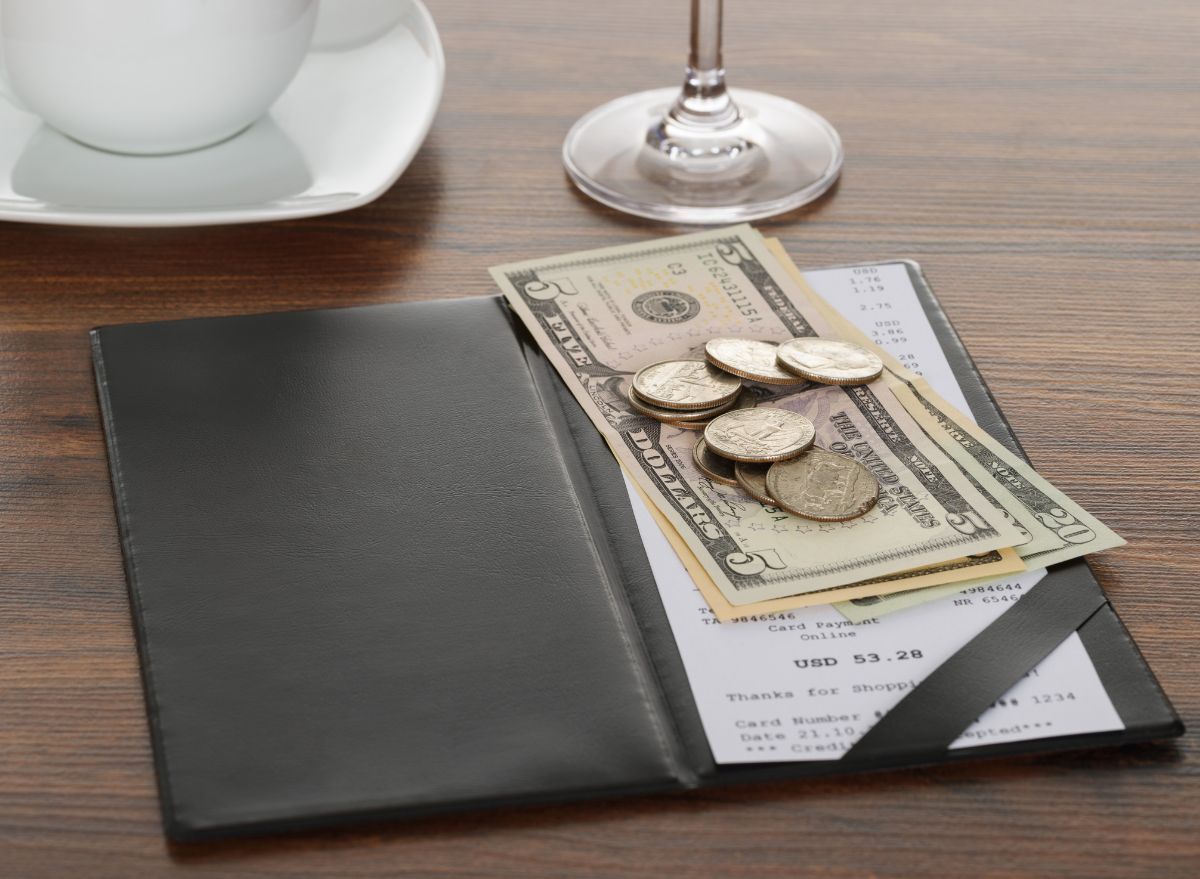The Government Wants to Crack Down on Restaurant 'Junk Fees' to Lower Your Dining Tab

Hidden fees and surcharges have become an abhorred yet increasingly common part of dining out in recent years. In 2023, for example, the National Restaurant Association reported that 13% of fast-food restaurants and 15% of restaurants overall had implemented service surcharges for their guests. Also referred to as "junk fees," these types of charges can often come as a surprise to diners since they're often excluded from the advertised menu prices at restaurants.
Consumers have been sounding off against the restaurant surcharge trend heavily on social media, especially since it's unclear exactly what they're paying for with many of these fees. However, restaurants could soon be required to be more transparent about those extra costs thanks to potential intervention from the federal government.
Last fall, the Federal Trade Commission (FTC) proposed a new rule that would crack down on the "junk fees" so many consumers have been contending with. While many previous media reports about the proposal have focused on how it will affect ticket sellers, airlines, car rental agencies, and other industries, Nation's Restaurant News recently reported that restaurant fees are also included in the proposed rule.
In the proposal, the FTC mentioned consumer complaints that "restaurants routinely add fees to bills that were not previously disclosed, using various names (e.g., 'service fee,' 'hospitality fee,' 'kitchen fee,' 'equity fee,' 'economic impact fee,' 'temporary inflation fee') that do not clearly or conspicuously identify their nature or purpose." The proposal also called out food delivery apps charging fees "that are not reflected in advertised food prices."

The FTC estimated that surcharges at restaurants and in other industries cost consumers tens of billions of dollars per year in unanticipated costs.
"By hiding the total price, these junk fees make it harder for consumers to shop for the best product or service and punish businesses who are honest upfront. The FTC's proposed rule to ban junk fees will save people money and time, and make our markets more fair and competitive," FTC Chair Lina M. Khan said in a statement in October 2023.
While the proposed FTC rule wouldn't eliminate the surcharges, it would require restaurants to be clear and upfront about any extra fees right off the bat. Businesses would have to include all mandatory fees in the advertised prices for their products so consumers aren't deceived about the actual cost. The rule would also require businesses to state the purpose and amount of the fees upfront to mitigate confusion.
RELATED: 10 Fast-Food Chains That Got Way More Expensive In 2023
It's not clear when, if ever, the FTC rule may be enacted since the agency only recently stopped accepting comments on the proposal from consumers on Feb. 7. The U.S. Chamber of Commerce has also warned the FTC about potential legal challenges to the rule, Bloomberg reported.
So, consumers may still have to contend with these unpopular hidden fees for now, but they can keep their fingers crossed that the FTC will eventually be able to make its proposed rule official. This all comes just days after President Biden's State of the Union address, in which he directly called out "shrinkflation," whereby various food products and household staples subtly get smaller while prices stay the same. Customers have noticed this happening at restaurants, too, with McDonald's most recently called out by customers who claim the Filet-O'-Fish has been shrinking.









